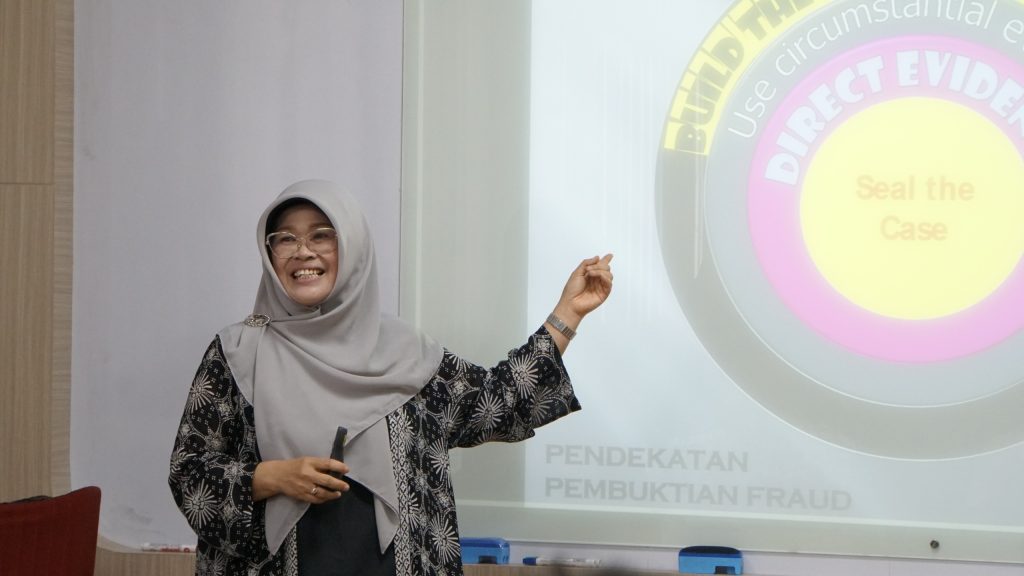Fraud in organizations often arises from pressure, opportunity, and rationalized justifications by perpetrators. This is why investigative audits, designed specifically to detect fraud, are essential.
Unlike regular audits, investigative audits focus on gathering and examining evidence to detect irregularities and enable legal follow-up. Senior Auditor at the Financial and Development Supervisory Agency (BPKP), Tuti Susilawati, SE., AK., MM., Mak., APT., CA, shared these insights during a guest lecture on Financial Audit and Control at SBM ITB, on Monday (10/14).
According to Tuti, the investigative audit process involves several key stages. The initial stage, Pre-Planning, involves using a 5W + 1H analysis to determine whether the case qualifies for audit. In the Audit Planning stage, the auditor formulates hypotheses, sets the scope, and allocates time and resources.
The next stage, Evidence Collection, includes physical examinations, interviews, confirmations, document reviews, and direct observation. Once gathered, the evidence is evaluated for relevance, competence, and sufficiency. The final stage, Reporting, and Follow-up, involves objectively presenting the facts and offering risk mitigation recommendations.

“It’s essential to organize evidence carefully so that facts can replace accusations. Auditors must be meticulous in developing data search strategies,” Tuti explained.
Tuti also emphasized balancing time, quality, and cost when gathering evidence. Tight deadlines often challenge auditors to work both quickly and accurately. Standards of evidence relevance, competence, and sufficiency are upheld in government institutions and reflect Good Corporate Governance principles. She also stressed the importance of structured interviews in investigations.
“Interview time is limited, unlike regular conversations. Therefore, interviews must be structured, focused, and efficient to obtain all key information aligned with initial
Tuti outlined the interview strategy before approaching the main subject, starting with background checks on related parties, including personal information, companies, neutral witnesses, collaborative witnesses, and co-conspirators. This method minimizes ineffective interviews, as perpetrators are unlikely to admit wrongdoing immediately.
Closing her session, Tuti offered guidance to SBM ITB students.
“As future leaders, strive to be knowledgeable and responsible. Understanding the concept of proxies will protect you from external manipulation.”






